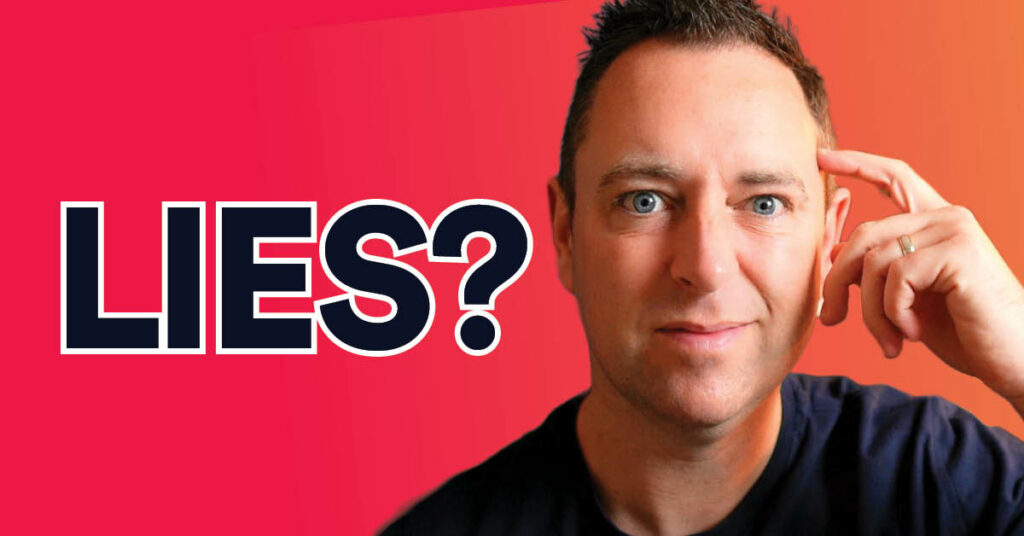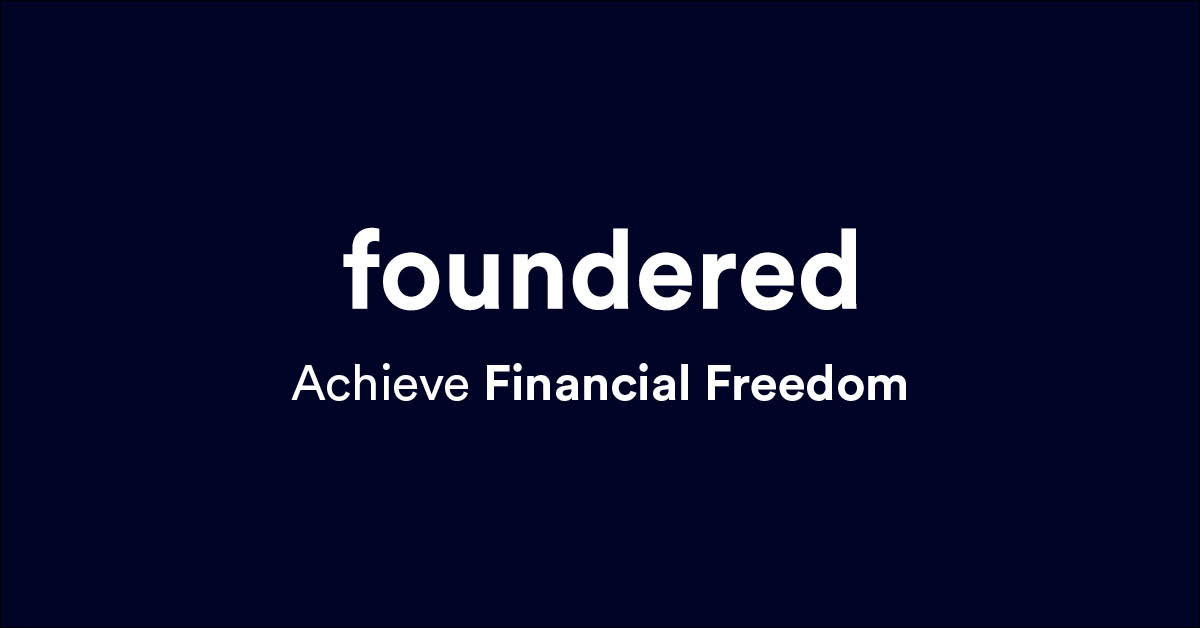As someone who talks a disproportionate amount of time about the financial independence retire early movement, I’m often told “facts” by people who are questioning the legitimacy of my being able to retire early. I completely get it, an early retirement isn’t normal. It seems extreme and to some, it probably is. But by pitting with extreme views, it makes it seem as though financial independence and early retirement for the masses is an unobtainable goal.
Is it hard? Yes. Getting harder to achieve. Also yes. But is it obtainable for many? I’d argue yes as well. Achieving financial independence is definitely on the far end of the spectrum away from the norm. Because most people aren’t saving enough for a normal retirement age in their 60s, let alone retiring in their 40s. But if you break it down into the principles of earning more, spending less and investing as much as you can, then it’s hard to disagree with these core steps on the journey towards financial independence.
Admittedly, some of the facts people use as arguments do hold some semblance of truth. That’s what makes them believable. And these comments are often supported by stories in the press where those who have achieved financial independence or an extremely early retirement live on extremely low household spending or have huge savings rates of 70 or 80%. These stories are popular because they are compelling. But they are extreme examples in the fire movement as well and more often, not the norm.
As always, I’m here to try and provide an objective view on personal finance and in today’s article, I’m questioning the top 5 Myths About FIRE And Early Retirement, so you can make your own informed decisions.
Myth No.1: You must save 50% and make huge sacrifices to retire early
It’s true that the greater percentage of your income you save and invest for early retirement, the quicker you’ll get there. However, many people are happy to 20% or 25% on autopilot through their workplace pension to achieve an early retirement in their 50s.
If we look at the 20% savings rate as an example and use an average rate of return of 8% throughout the investing timeline, then it would take 37 years to reach your fire number where you can withdraw 4% from your investments annually.
If someone finishes university and starts putting money towards their early retirement, then at age 59, they’ll be financially free.
Of course, those who want to retire in their 30s or 40s would have to save significantly more to achieve their goal, but that’s entirely up to them. It’s their choice if they want to. And many do. When you begin on the path towards early retirement, it becomes infectious. You make decisions to reduce your spending, not because you feel you need to, but because you want to put this money to work for your future instead.
Saving more does not mean sacrificing your quality of life, but rather spending money only where you truly value it and saving everywhere else. Personally, travel is my non-negotiable. I like skiing and I enjoy time in the sun. We have a healthy budget for travel in retirement as we did when saving for it. Conversely, there are things I’ll never spend money on. I’ve never ordered from Just Eat or Deliveroo, because of the fees of doing so. There are of course stories of those who live on extreme budgets and practice frugality to achieve FIRE in a record time. Who am I to disagree when someone makes such choices? As long as they’re happy right?
Myth No.2: Early retirement doesn’t mean sitting around and never working again
This is probably the most common myth people mention to me when I explain I’m retired. The expectation is that traditional retirees doddle about, tend to their garden and wind down in their later years taking endless holidays.
Of course, this sounds pretty good, but as someone who’s retired at 40. I’ve still a lot to give. Lot’s to learn and lots to explore. In the first 6 months of early retirement, I’ve done so much, I don’t know how I had the time for work. Being financially independent means you have the choice to work for money if you want to.
I’d argue that I’ve contributed more to society in these 6 months of creating content than I did ever before.
The answer is of course early retirement gives you the choice. This past few weeks we’ve had unseasonably great weather. There’s been a heatwave and it’s been class. I decided I was going to “take time off” from creating content. And I did…for the most part. I’ve enjoyed the sunshine, I’ve played golf and I’m teaching my daughter how to ride her bike. There will always be time to create articles or put videos on YouTube, and I can choose when to be productive and when to lie on a sun lounger for the day.
When I left work, I initially felt the overwhelming need to be productive every day. The decompression phase of early retirement takes time and when you don’t need to work for money, you become much more specific in your intent. I value my free time more than anything else, so working for money or indeed for free must fulfil a specific need or provide me with a benefit. I’ve said no to more “Coffee and chats in the past 6 months because there is no inherent benefit to me. I make no apologies for that.
Myth No.3: FIRE is only for high earners
The amount you earn is secondary to the percentage you save when it comes to achieving your financial independence goals. Earning a large income doesn’t necessarily mean you’ll be able to FIRE. Many of those making big money have huge spending habits, or lifestyles that require significant sums. It’s often harder for these people to reduce their spending. Maybe not physically, but from an emotional point of view.
Let’s go back to Myth No. 1 for a second. Is giving up your 3rd holiday for the year a huge sacrifice or a choice? It of course depends on your goals.
But make no mistake, if you are a high earner, then it can be easier to achieve FIRE than someone on a lower income. I mentioned in my last video, that before I started my business, my biggest salary was £20,000. Very quickly in business, my income grew to many multiples of this. As my income grew and grew, I held back my lifestyle and spent relatively similar to when I was earning £20,000. This catapulted my FIRE journey.
Being on a lower income will restrict your ability to achieve Financial independence, but it won’t close it off entirely. If you can continue to live on your current income amount and put any pay rises or income from side hustles away for your future, you can massively increase your savings rate and achieve early retirement. I have one client who similarly to me, had a lower-paying role. But over the past decade, their income has grown through a side hustle. Where their workplace pension is paying 8% a year into their retirement funds, through a side hustle, they have increased their income by 20%. All of which are also being invested for their future. In 2 evenings a week they can increase their savings rate to nearly 30% and all but guaranteeing an early retirement.
Myth No.4: The next recession will end the FIRE movement
Since I started on my path to retirement, we were coming from the 2007 banking crisis and we lived in the longest bull run in history. I have no doubt this contributed to my success and that of many people like me. Since then we have had the pandemic and during which my investments declined by over 30%. Following that we’ve also to factor in the cost of living crisis and the war in Ukraine. There will always be challenges to face and of course, plans will have to change.
And that’s the beauty of FIRE. If things change and your financial position means you can no longer afford an early retirement, you fall back to the default position that everyone else is in. You might need to earn some money or dip into a larger percentage of your investments. You have the choice to do so and the knowledge to understand that you may need to replenish these funds.
Let’s say you have a shortfall in your retirement funds of 10% this year. Well if your budget is £30,000 a year, you need to earn £3,000 to meet the shortfall. These days you could probably earn that in a weekend with a couple of toe pictures, or you could work a few hours a week in a lower-paying job.
The above assumes that you’re drawing down your funds in early retirement. But a recession when you’re accumulating your wealth can be a good thing. When stocks are on sale, fill yer boots as they say. Though the stock market is the only place people stop buying when it’s on sale. Funny that!
Myth No.5: Early retirement is impossible if you want a family
According to the Money Charity, the average cost of raising a child in the UK is £27.90 a day.
Kids can of course be costly, but in reality, they are only as expensive as you allow them to become. Yes, this additional cost can add years to your working career, but in no way will it stop you from retiring. As long as you plan for it.
From a financial perspective, if we budget for children and their costs, we can create a plan to afford them. Buying a larger house, taking more people on holiday or even feeding extra mouths at home may delay our retirement, but these additional costs don’t last forever (we hope) and when the children have flown the nest, the money you save can supercharge your investing.
Many do choose to forgo children. Some of these people of course do it for financial reasons and their will to retire early, but in my opinion, these people are the exception. For every story like this, you read, I can share a comparable one with a family exploring early retirement together.
The financial independence retire early movement can often be portrayed in a less than endearing manner. Sacrifices and challenges make great stories and of course, they are often true. But extreme situations make the opportunity of achieving financial independence seem so far removed from the norm. Because for the most part, they are, even to me.
Want more like this? head over to Foundered Money on Youtube and get great personal finance content.


